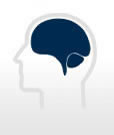Jun. Prof. Dr. Markus Reichert, Department of eHealth and Sports Analytics, Faculty of Sport Science

Research Programme:
We are interested in the brain circuitry and neural mechanisms that are involved in humans’ everyday-life physical behavior (e.g., comprising sedentary behavior such as sitting, nonexercise activity such as stair-climbing, and exercise such as jogging), especially in the context of well-being and mental health.
To research these domains, we draw from an interdisciplinary approach combining methods from systems neuroscience, sport science, ambulatory assessment, geoinformatics, and epidemiology.
This enables us to both capture psychological mechanisms in real-life using an ecological valid assessment and taking contextual influences into account (e.g., via ecological momentary assessment such as electronic diaries on smartphones; via mobile accelerometers, electrocardiography, and glucose sensors; via smartphone sensing, including geolocation tracking), and to research the neurobiological underpinnings through laboratory neuroscience methods such as functional magnetic resonance imaging.
Examples comprise our research on structural neural underpinnings of nonexercise activity and its relationship to well-being in everyday life, as well as the neural correlates of the momentary effect of urban green-space exposure on affective valence:
- Tost, H.*, Reichert, M.*, Braun, U.*, Reinhard, I., Peters, R., Lautenbach, S., Hoell, A., Schwarz, E., Ebner-Priemer, U.*, Zipf, A.* & Meyer-Lindenberg, A.* (2019). Neural correlates of individual differences in affective benefits of real-life urban green space exposure. Nature Neuroscience, 22 (9), 1389–1393. doi:10.1038/s41593-019-0451-y
- Reichert, M.*, Braun, U.*, Gan, G., Reinhard, I., Giurgiu, M., Ma, R., Zhenxiang, Z., Hennig, O., Koch, E.D., Wieland, L., Schweiger, J., Dragos, I., Hoell, A., Akdeniz, C., Zipf, A., Ebner-Priemer, U.W.*, Tost, H.*, & Meyer-Lindenberg, A.* (2020). A neural mechanism for affective well-being: Subgenual cingulate cortex mediates real-life effects of non-exercise activity on energy. Science Advances, 6, eaaz8934. doi: 10.1126/sciadv.aaz8934.“


